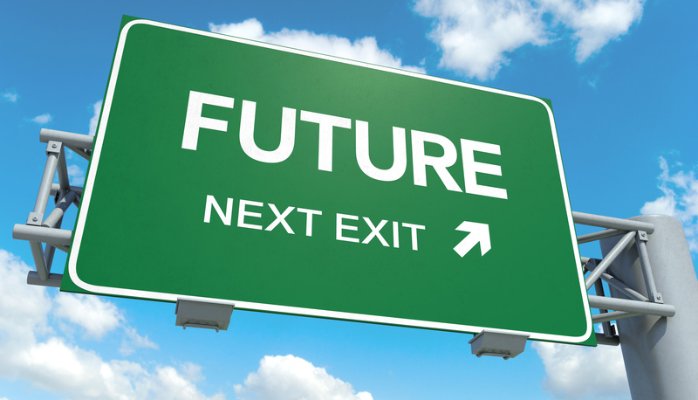
For many people, there’s something about the present that’s just not good enough, the nagging feeling that what’s happening now needs to better, is in some way insufficient and unsatisfying. Out there, tomorrow, in the future, things will be better.
Even if we like our job, enjoy our friends and family, can entertain and amuse ourselves and generally keep busy, we get focused on the future. We save for the future, at least those of us earning enough to save. We plan for the future: the vacations we will take, the retirement we will enjoy, the grandchildren we will have. We eat right, exercise and stay informed, all so that we’ll be here and better prepared for tomorrow.
Our fixation on the future is in large part due to our lineal experience of time and events. We see the world in terms of lines drawn between events and points in time; we want to “connect the dots” as a way of understanding and coming to terms with the world. As seductive as this is, it disregards the randomness of things, the manifestations of complexity so unfathomable as to appear as chaos. When we can draw a line between events we feel more comfortable emotionally; finding a cause to blame removes us, albeit temporarily, from the ravages of chance.
We are trained to think and see in a lineal fashion very early in life. From behavioral reinforcement based on reward and punishment to simply learning to read, a lineal approach quickly dominates our conception of reality. If we are good little girls and boys then we will get ice cream; if we are not, well, perhaps we will be sent to our rooms without supper. Reading is training in lineal thought; we begin on the left and move to the right, and when we come to the end of the line, we move down to the next. Thus the “dots” of cause and effect are connected by lines of rational thought which, in the words of anthropologist Dorothy Lee, engender “codifications of reality.”
The arrow of time moves in one direction only; we don’t grow younger, a dropped glass does not jump back up on the counter and put itself together. The Second Law of Thermodynamics instructs that entropy – disorder – only increases, and in this sense our future is bound to become even more incomprehensible, as incomprehensible as that may be. Entropy, as defined by physicist Leonard Susskind, is the measure of “hidden information.” In other words, as entropy increases our ability to know “how the dots are connected” decreases. In simpler language, as complexity grows, our lineal way of thinking becomes less adequate.
This brings us to the topic of resting in the moment – nowness – or what we might simply call “being.” Nowness is devoid of future; it’s not a line, it’s a dot. By relaxing into the moment, not just with body but also mind, awareness of the present has room to naturally arise.
The present provides space and an opportunity to feel; feeling may be pleasant or not, but once we have allowed ourselves to feel, nowness offers the workability of the moment, the freedom to make a fresh start, to make choices, or just to be. In this respect, nowness is completely unlike the future or for that matter the past; it’s the basic truth of our timeless, non-lineal reality.